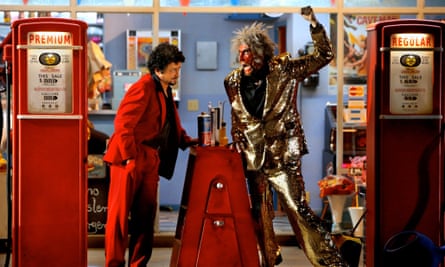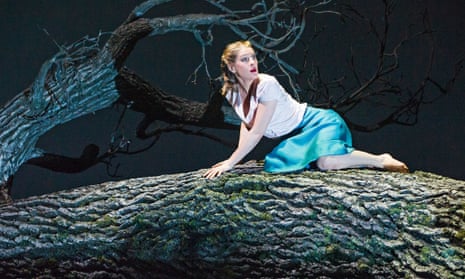What happened at Covent Garden during, rather than at the end, of the first night of a new production of Rossini’s Guillaume Tell this week was clearly exceptional, but booing is by no means unusual at opera first nights. It does seem to have become particularly prevalent at the Royal Opera House in the last few years – an indication, perhaps, of the quality of many of the new productions presented there since Kasper Holten became director of opera – but booing has always been with us. There always seems to be a faction of first-night opera audiences that turn up primed to find fault wherever it can, and ready to volubly express its feelings. And some audiences simply don’t like to be confronted with something challenging on the opera stage.
In Italy it is generally the singers who get the brunt of the abuse, especially if they happen not to be Italian. In 2006, the tenor Roberto Alagna walked out of a production of Verdi’s Aida at La Scala, Milan after he was booed at the end of his first-act aria; even Luciano Pavarotti was booed there, in the same opera two decades earlier. But in the UK and Germany it is generally production teams who are most likely to cop it, especially if their work is in any way challenging or aggressively non-realistic, or in the case of a number of recent Covent Garden shows, simply poor.

Yet many of the shows that are now regarded as classics were condemned when they were first seen: Patrice Chéreau’s centenary production of Wagner’s Ring Cycle at Bayreuth in 1976, now generally agreed to be one of the most influential opera productions of modern times, was roundly abused at its first outing, though it was cheered to the echo when it was revived five years later. The era of “the powerhouse” at English National Opera in the 1980s, which in retrospect seems to have been a golden age for British opera, included a number of productions that offended and appalled as much as they enlightened and engaged. The fuss over Calixto Bieito’s production of A Masked Ball, at the Coliseum in 2002, which included nudity, male and female rape and, apparently worst of all, depicted the conspirators sitting on a row of lavatories, really did turn out to be a flash in the pan.

Among the wider public it is often the same people who routinely dismiss opera as a dead, elitist art form who then take most offence when directors try to make it confrontational and give it contemporary relevance. In the case of the new Guillaume Tell, it seems as if the context of its rape scene, placed where the third-act ballet should have been, in a poor production updated to present-day Balkans but otherwise apparently lacking in perceptive ideas, added to the disapproval. A rape in the final act of David Alden’s current ENO production of Tchaikovsky’s Queen of Spades – admittedly with the victim fully clothed but still inexplicable in terms of the work itself – passed with little comment, while the Royal Opera’s current production of Rigoletto, revived regularly, contains a similar scene.
Damiano Michieletto’s production of Guillaume Tell obviously crossed a line, perhaps because of the rape scene’s gratuitous length, perhaps because of the nudity, but exactly what that line is, and who defines it, is hard to tell.

